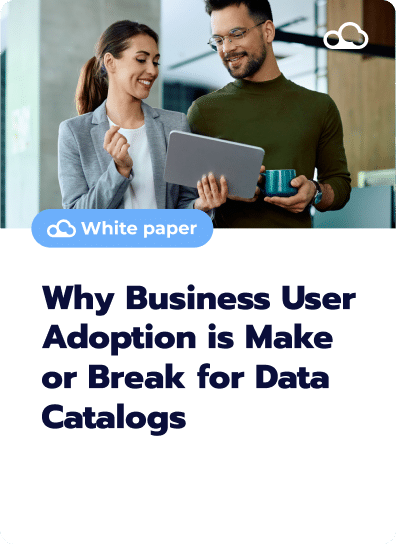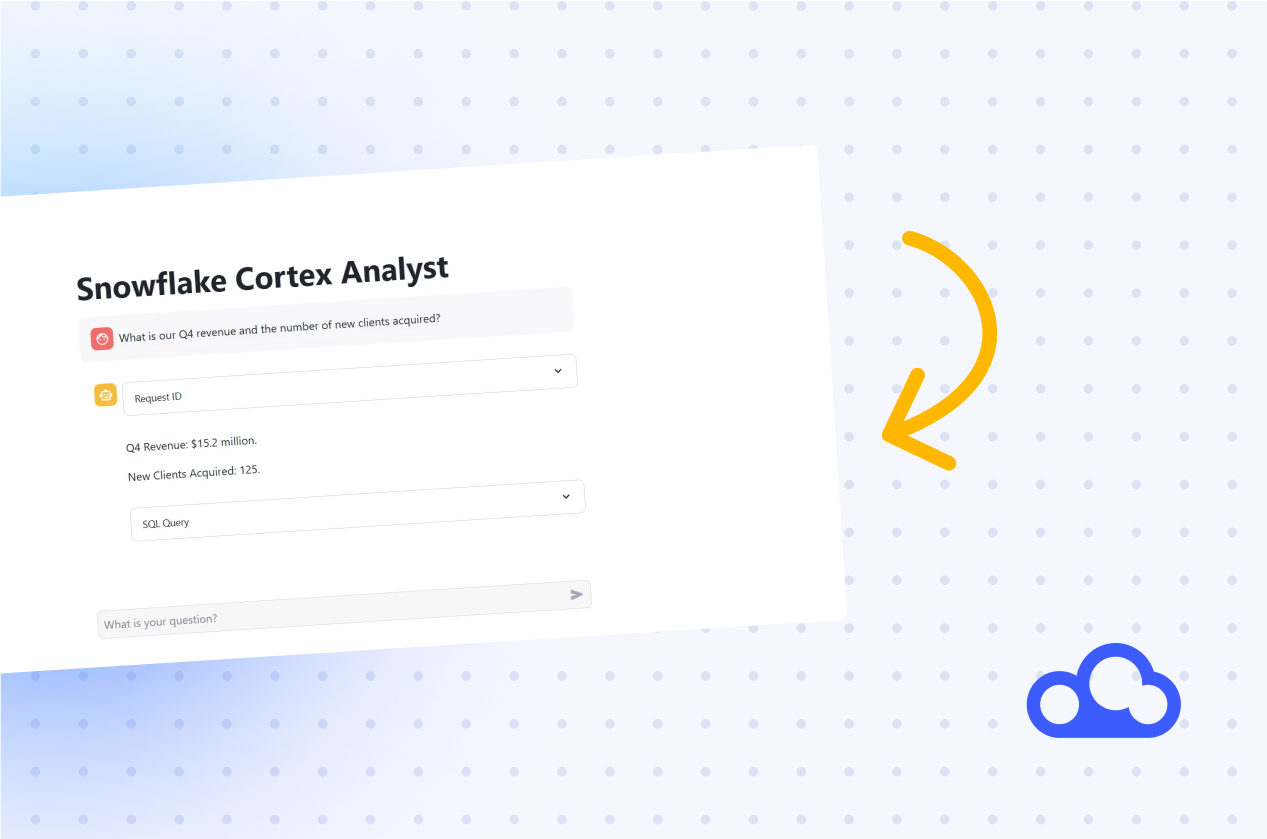Have you ever wondered what a data catalog is? Or maybe you've wondered why it’s essential for making smart business decisions.
This blog post explains what information a data catalog holds and how it will help your team make faster, more informed decisions.
What is a data catalog?
At the simplest level, a data catalog is an inventory of all the data available to a company.
However, it is much more than just a simple list of what data you have. It is a data management tool that collects and organizes metadata, clarifies data definitions, maps data lineage, and details essential business attributes so all users can understand how to leverage their data as an asset.
Using a data catalog, users have access to and can quickly retrieve all key information and data used by the company for more informed decision-making. Data catalogs are also handy for building and implementing an organizational data governance plan.
Data catalogs often offer search and discovery tools, data lineage tracking, and collaboration features, making it easier for analysts, data scientists, and business users to work with data efficiently. Essentially, a data catalog acts like a library index for data, promoting data governance, accessibility, and informed decision-making.
What is metadata?
Metadata is data about data. It describes the information used or generated by a company, including data definitions, structure, sources, quality, uses, and procedures.
The more your business grows, the more data you need to process. Standardized, reliable, and easily actionable data can bring real business value to your company, so it's important to organize, map, and index it.
Harnessing the power of metadata is essential for any organization looking to maximize the value of its data. Metadata—information that describes the context, origin, structure, and usage of data—is vital in making data more discoverable, trustworthy, and manageable.
When used effectively, metadata helps teams quickly find the data they need, understand its relevance, and ensure it's being used appropriately and complies with internal policies and regulations. It also supports automation, streamlines workflows, and reduces the risk of costly errors.
By investing in metadata management, companies can drive smarter decision-making, improve operational efficiency, and fully capitalize on their data assets.
What makes up a good data catalog?
The four primary features of a classic data catalog include:
A metadata dictionary
Clear labeling
An intuitive search engine
The ability to manage permissions and access controls
To customize a data catalog to your specific business needs, you must carefully select additional features that are most necessary for your organization, including:
Automatic and intelligent metadata import from multiple data sources
Collaboration features (adding comments and information and a notification center)
Traceability and data lineage to visualize the origin and transformations of data over time
Main user benefits
A robust data catalog solution is essential for organizations to make smarter, data-driven decisions. It allows users to:
- Democratize access to data
- Ensure the reliability and accuracy of information
- Control the quality of data
- Collaborate efficiently
- Facilitate decision-making based on contextualized and actionable information
The true advantage of utilizing a data catalog is that anyone can use it - You don’t need to be an expert to use data. No technical skills are required, making it easy for all teams throughout the company to benefit from its numerous advantages.
An asset for the entire company
The data catalog is a valuable asset that many different teams in the company should take advantage of. However, there are a few key players who benefit most from utilizing this software:
1. Chief Data Officers (CDOs) & Data Governance Managers
Data catalogs allow CDOs and Data Governance Managers to establish proper data governance for the entire organization.
They provide a unified and centralized view of data information and its lifecycle within the enterprise. Thus, all data professionals and experts can leverage data more effectively.
2. Business Intelligence Managers & Data Scientists
Business Intelligence Managers, Data Analysts, and Data Scientists can manage their various projects more easily by utilizing a data catalog.
They can quickly access an optimized history consultation and immediately identify the business experts responsible for the data. A data catalog is essential for analyzing data, accessing key indicators, and reporting with complete peace of mind.
3. Business users
A data catalog offers all users a way to access precise data immediately. Business users don’t need to waste more time identifying the person responsible for the data they want to access.
In addition, a data catalog helps prevent errors when business users enter or modify data.
Conclusion
A data catalog is a comprehensive data management tool that organizes metadata and provides a unified view of all available data within an organization, enabling faster and more informed decision-making.
Metadata describes key information such as definitions, structure, sources, quality, uses, and procedures related to the data. The catalog includes features like a metadata dictionary, clear labeling, a search engine, access controls, and additional customizable features like automatic metadata import and data lineage visualization.
The main user benefits include democratizing data access, ensuring data reliability and quality, facilitating collaboration, and simplifying decision-making.
The catalog proves valuable to Chief Data Officers, Business Intelligence Managers, Data Scientists, and business users alike, making it an essential asset for any organization seeking to leverage data effectively and establish robust data governance.
Your data,
revolutionized









